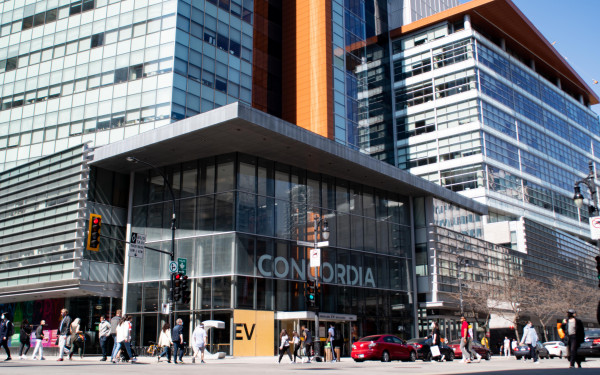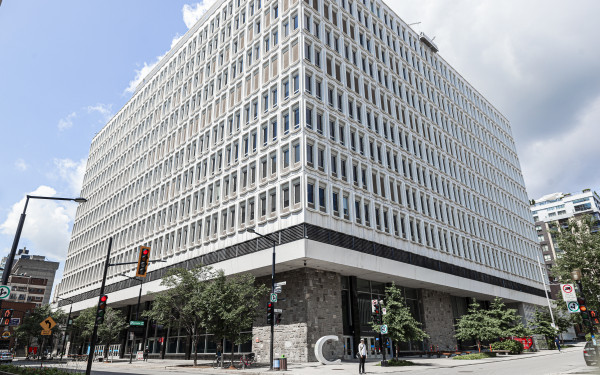TRAC Deserves R-E-S-P-E-C-T
Collective Bargaining in a Time of Budget Cuts for Teaching Assistants
It’s difficult to jump right into an op-ed about the teaching assistants and research assistants’ collective bargaining at Concordia.
We face issues that go well beyond the usual antagonism between employers and employees. Universities are not factories, so the issues and concerns involved in negotiations are quite different from standard labour negotiations.
Universities have been changing in the last 10 to 20 years, not only in Quebec, but also all over the world.
There has been tremendous pressure by international organizations—mainly those associated with a neo-liberal socio-political agenda—to eliminate public funding and replace it with private funding from corporate sources (being paid for research and scholarship) or students (tuition hikes and student debt).
But as with the public funding of other social goods like highways, bridges, ports, parks, public security, intelligence and military services, the private sector has generally failed to provide what the public sector no longer seems willing to pay for.
Universities have suffered financially as a result, and university boards largely controlled by business interests have adjusted priorities accordingly. Disagreement about whether universities suffer from under-funding or poor budgeting misses the point: we suffer from both.
In Quebec, this trend influenced the policies of the Liberal government under Jean Charest and continues to influence the actions of the Parti Québécois government under Pauline Marois.
Universities have been ordered to trim already extremely tight administrative budgets. Beyond the usual reductions in office supplies and photocopies, hiring freezes and reductions in working hours are also probable.
“One way to save money is to hire cheaper workers to do the same work as more expensive workers. Therefore, TAs are hired to take some of the load off of instructors so that class sizes can be increased.”
Universities have been given permission to increase ancillary fees—for every dollar of tuition you are charged, you pay another $0.50 in fees—not to mention fees for miscellaneous services.
Universities have also been ordered by the government to go into business, renting real estate, operating retail stores, selling every flat surface to advertisers and contracting to do private research, among other things.
Much of what passes for funding has gone into new buildings and facilities, while the people that inhabit them are neglected. Since the government does not fund 100 per cent of the costs of those buildings, universities end up carrying a large debt burden—which in turn takes up a large piece of operating budgets.
And, by a huge margin, most of what Concordia’s operating budget supports is people: pay, wages, salaries.
The money that is paid out is paid out to professors, to lab technicians, to maintenance workers, to departmental assistants, to the people who reshelve books in the library, make classroom projectors work, wash the windows and mail out transcripts.
How do teaching assistants fit in all of this?
One way to save money is to hire cheaper workers to do the same work as more expensive workers. Therefore, TAs are hired to take some of the load off of instructors so that class sizes can be increased.
The math is attractive: If one professor can handle a class of 30 students, then accommodating 60 of them might take two classes and two professors; instead, one professor can lecture 60 students, and then everything else can be done by two TAs who cost a fraction of what a second professor would cost.
In Point 1.1 of Concordia’s Academic Plan, teaching assistantships are framed as graduate funding, like a fellowship or bursary.
But in Point 3.4.2, we see what the plan has to say about the function of TAs: In order to keep costs down, TAs do what instructors once did, which is to provide a “small class experience” by “facilitating smaller group activities and tutorials” even though under-funding and poor budgeting have “made it necessary to increase class sizes.”
This leaves out the other work that TAs do: grading assignments and exams, holding office hours, setting up and managing labs, and otherwise fulfilling not only a support role, but a primary role in the education of thousands of students in hundreds of classes—all for pennies on the dollar.
A teaching assistantship is not an honour recognizing academic excellence, an internship, an apprenticeship or a form of student aid. It is a job. And a job that has an increasingly fundamental place in how Concordia and other universities operate—and in how employees and labour costs in universities are managed.
So the issue is not merely one of fair and competitive wages, fairness in job postings, getting paid on time, being categorized in the correct pay grade or merely meeting with us to discuss these things—all issues Concordia has failed us on at some point or another—but about plain respect: to be recognized for the essential role we play, and to be treated accordingly.
—Robert Sonin,
President of the Teaching and Research Assistants at Concordia
Public Service Alliance of Canada Local 12500
Teaching and Research Assistants at Concordia will be discussing these issues at a general assembly Jan. 30 in the Concordia Student Union’s seventh-floor lounge at 12:00 p.m. Of course, we encourage all TRAC members to attend, but all members of the Concordia community are welcome.

(WEB)_900_540_90.jpg)




__600_375_90_s_c1.jpg)
__600_375_90_s_c1.jpg)